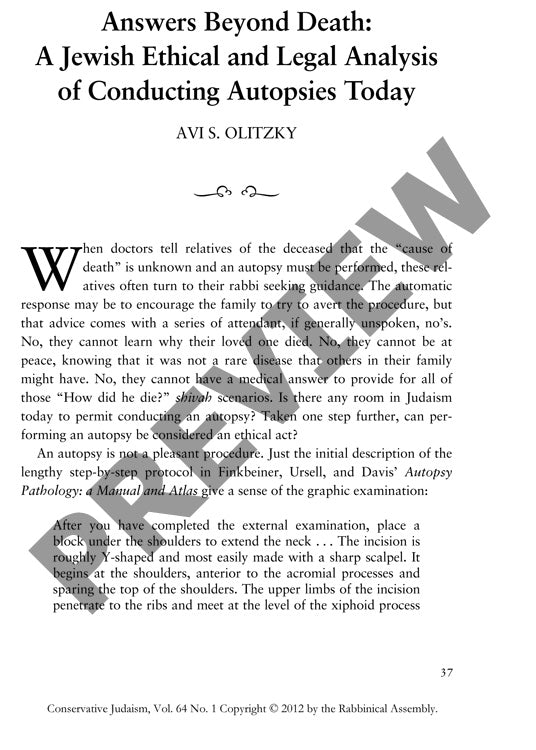Answers Beyond Death
Couldn't load pickup availability
When life-saving medical knowledge collides with religious obligations to honor the dead, Jewish communities face profound ethical dilemmas around autopsy procedures. Through analysis of classical rabbinic sources, responsa literature, and modern halakhic authorities, three primary religious objections emerge: delay of burial (halanat ha-meit), inability to perform ritual cleansing (tohorah), and desecration of the dead (nibbul ha-meit). While autopsy procedures inherently conflict with Jewish burial customs and respect for the deceased, the principle of mitzvat aseih doheh et lo ta'aseih (positive commandments supersede negative ones) creates pathways for permissibility under specific circumstances. These include immediate danger to a specific individual (holeh nimtza l'faneinu), suspected contagious disease, hereditary conditions threatening surviving family members, or civil law requirements under dina d'malkhuta dina. Modern alternatives such as Virtopsy and toxicology screening may circumvent traditional halakhic concerns. Though autopsy should generally be avoided (l'khathillah), it becomes ethically permissible and potentially obligatory in specific circumstances involving genuine pikuach nefesh (preservation of life), provided it represents the last resort after exhausting less invasive alternatives. This analysis provides practical guidance for contemporary Jewish communities navigating medical decisions while maintaining halakhic integrity.

More Information
-
Physical Description
-
Publication Information
Published 2012
ISBN
-
Publication Credits

